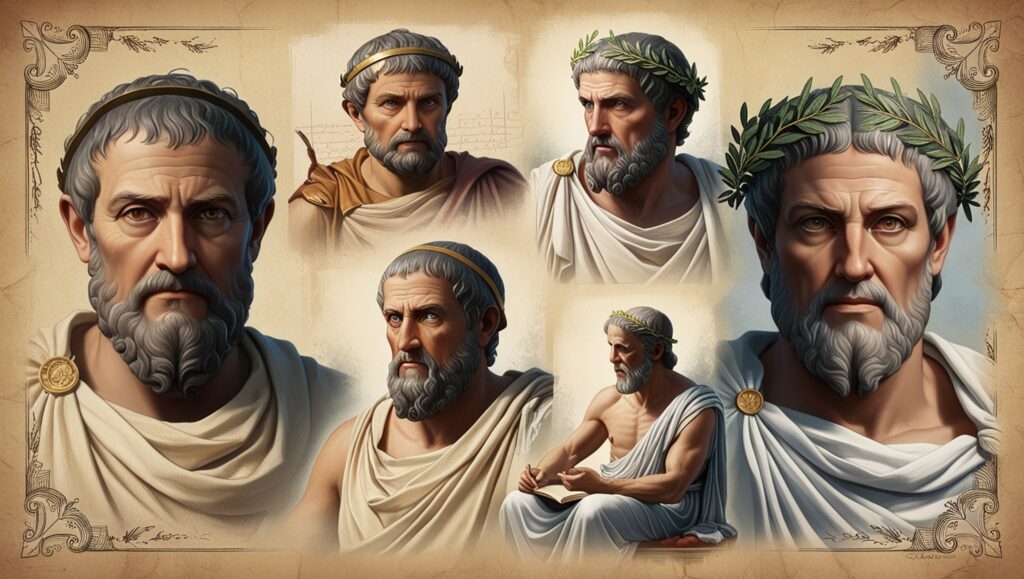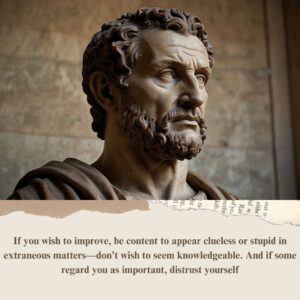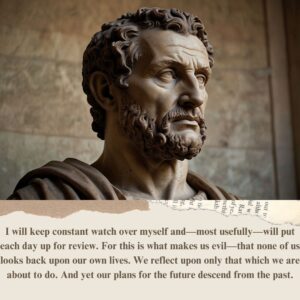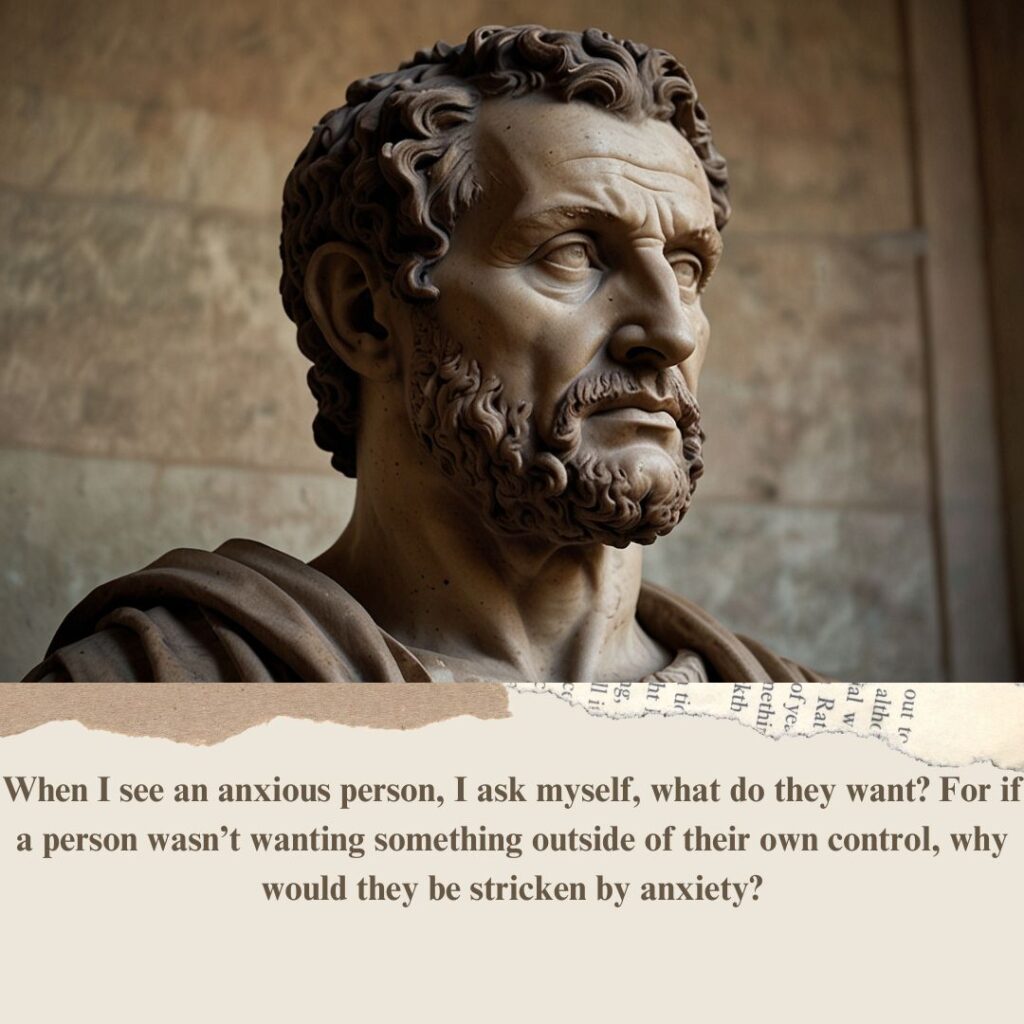Marcus Aurelius is a name that echoes through the annals of history, not just as a Roman Emperor, but as a thinker whose ideas still resonate today. Let’s dive into the life of this remarkable figure, exploring what made him stand out, the core of his philosophy, and why he remains relevant in our lives.
What is Marcus Aurelius Most Famous For?
Marcus Aurelius is best known for his role as a Roman Emperor and his profound writings in Meditations. Born on April 26, 121 AD, Marcus didn’t just rule the Roman Empire from 161 to 180 AD—he also spent a lot of time contemplating the big questions in life. His Meditations were essentially his personal diary, filled with reflections on how to live a good life, stay true to one’s principles, and manage the challenges of leadership. These writings, meant for his own growth, have become a classic guide on Stoic philosophy, offering wisdom on resilience, virtue, and personal conduct that’s still incredibly relevant today.

Why is Marcus Aurelius So Great?
What makes Marcus Aurelius truly great is how he fused his role as a ruler with his Stoic beliefs. Imagine leading an empire during a time of constant conflict and still finding the mental space to reflect on life’s deeper meanings. Despite the pressures of his office, Marcus Aurelius maintained a commitment to fairness, wisdom, and self-improvement. His philosophy wasn’t just theoretical—it was practical and lived out in his everyday actions. He showed that you can be a powerful leader and still be deeply introspective, and that’s what continues to captivate and inspire people.
Was Marcus Aurelius the Most Powerful Man in the World?
At his peak, Marcus Aurelius held immense power as the Roman Emperor, ruling over a vast and influential empire. But was he the most powerful man in the world? In the grand scheme of history, power is always relative. While he commanded a great empire and wielded significant influence, his power was constrained by the political and military realities of his time. His role was influential, but not omnipotent—he faced numerous challenges and had to navigate the complexities of ruling one of history’s largest empires.
Did Marcus Aurelius Believe in Heaven?
Marcus Aurelius’s Stoic philosophy offers a unique perspective on concepts like heaven. Unlike many religious views that focus on an afterlife, Stoicism is more about understanding and accepting the natural order of things. For Marcus, the focus was on living a virtuous life and aligning with nature’s principles rather than speculating about a heavenly realm. His reflections suggest that he was more interested in how to live well in the here and now than in what might come after.
Did Marcus Aurelius Believe in the Afterlife?
When it comes to the afterlife, Marcus Aurelius didn’t spend much time speculating. His Stoic beliefs centered on the idea that the soul is part of the natural order and continues to exist in some form after death. However, he emphasized living a virtuous and meaningful life in the present rather than focusing on what might happen after we die. For Marcus, the real work was in how we conduct ourselves and find purpose in our current lives.
Marcus Aurelius’s Birth and Death (How Old Was He When He Died)
Marcus Aurelius was born on April 26, 121 AD, and passed away on March 17, 180 AD, making him 58 years old at the time of his death. His life was filled with both public and personal challenges, and his reflections during his later years offer a glimpse into his thoughts as he navigated the complexities of his role as emperor and philosopher.

Emperor Marcus Aurelius’s Legacy
Marcus Aurelius’s legacy is a rich tapestry woven from his role as an emperor and his philosophical insights. He’s remembered not just for his governance but for the depth of his thought. His Meditations continue to be a source of inspiration for those seeking to live with integrity and wisdom. His reign is viewed as a period of stability, and his writings reflect a commitment to justice and personal growth. Marcus Aurelius’s legacy endures because he exemplified how to balance leadership with philosophical reflection, providing guidance that remains relevant across centuries.
IF you want to learn more about stoicism, Visit our article through this link : CLICK HERE
Marcus Aurelius’s Key Ideas
Marcus Aurelius’s philosophy offers practical wisdom that can help us navigate life’s ups and downs. Here are ten key ideas from his writings:
- Control What You Can: Focus on how you respond to situations, not the situations themselves.
- Embrace Impermanence: Accept that everything changes, and make the most of the present moment.
- Live According to Nature: Align your actions with the natural order and your role in it.
- Practice Virtue: Cultivate wisdom, courage, justice, and self-discipline.
- Maintain Inner Peace: Achieve calm by controlling your thoughts and reactions.
- Accept Fate with Grace: Welcome life’s events with acceptance and composure.
- Reflect Daily: Regularly reflect on your actions and thoughts to grow and improve.
- Be Compassionate and Just: Treat others with empathy and fairness.
- Avoid Distraction by Others: Focus on your own behavior rather than being disturbed by others.
- Live in the Present Moment: Concentrate on the now, as it is the only time we truly control.
Marcus Aurelius Tattoo
Marcus Aurelius’s influence even reaches into the realm of body art. Tattoos inspired by his philosophy often feature quotes from Meditations or symbols related to Stoicism. Popular choices include phrases like “The impediment to action advances action. What stands in the way becomes the way” or images symbolizing strength and resilience. These tattoos serve as personal reminders of his wisdom and the Stoic principles he espoused, embodying the timeless nature of his ideas.
In wrapping up, Marcus Aurelius’s life and thoughts offer profound lessons on how to live with purpose, navigate challenges, and lead with wisdom. His blend of philosophical insight and practical leadership continues to inspire and guide people today, making his legacy a beacon for those seeking a meaningful and reflective approach to life.
FAQ
1. Who was Marcus Aurelius? Marcus Aurelius was a Roman Emperor who ruled from 161 to 180 AD. He is renowned for his Stoic philosophy and his writings, particularly “Meditations,” which offer deep insights into self-discipline, virtue, and the nature of life.
2. What is Marcus Aurelius most famous for? Marcus Aurelius is most famous for being one of the last Five Good Emperors of Rome and for his philosophical work “Meditations.” His wisdom, leadership, and dedication to Stoicism have made him an enduring figure in history.
3. Why is Marcus Aurelius considered great? He is considered great due to his unique combination of philosophical wisdom and practical leadership. Despite facing numerous challenges, including wars and plagues, he governed with compassion and rationality, adhering to Stoic principles of self-control and virtue.
4. Was Marcus Aurelius the most powerful man in the world? During his reign, Marcus Aurelius was one of the most powerful men in the world, leading the vast and influential Roman Empire, which spanned across Europe, North Africa, and parts of Asia.
5. Did Marcus Aurelius believe in heaven or an afterlife? As a Stoic philosopher, Marcus Aurelius did not focus on the concept of heaven or a personal afterlife. Instead, he emphasized living a virtuous life in the present moment and accepting death as a natural part of existence.
6. When was Marcus Aurelius born, and how old was he when he died? Marcus Aurelius was born on April 26, 121 AD, and he died on March 17, 180 AD, at the age of 58.
7. What is the legacy of Marcus Aurelius? Marcus Aurelius’ legacy includes his profound philosophical writings, especially “Meditations,” and his exemplary leadership as a Roman Emperor. He is remembered for his commitment to justice, virtue, and the well-being of his people.
8. What are some key ideas of Marcus Aurelius? Some of Marcus Aurelius’ key ideas include living in accordance with nature, practicing self-discipline, maintaining rationality, and focusing on what is within one’s control while accepting what is not.
9. Why do people get Marcus Aurelius tattoos? People often get Marcus Aurelius tattoos to carry his wisdom and principles with them. Popular designs include quotes from “Meditations,” symbols of Stoic philosophy, or images of Marcus Aurelius himself, serving as personal emblems of resilience and philosophical commitment.
IF you want to learn more about stoicism, Visit our article through this link : CLICK HERE
If you’re interested in learning more about Stoicism, here are some recommended books for beginners:



